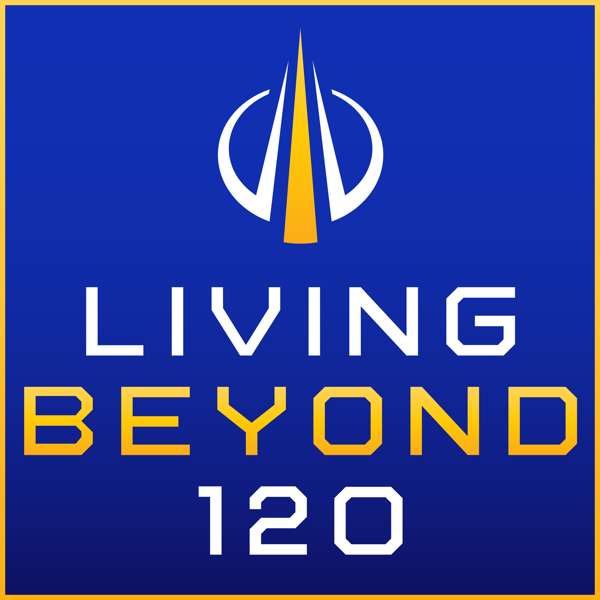Nurse Doza presents an informative podcast about heart disease, the leading cause of death in the United States. It discusses how heart disease can be both expensive to manage and preventable. It emphasizes the importance of making healthy lifestyle choices such as quitting smoking to reduce the risk of heart disease by 50%.
00:00 The heart should be dear to everyone because everyone is affected by heart disease
04:30 Prevent heart disease.
10:59 Reduce heart disease risk: Exercise.
14:09 Take Omega 3 fish oil.
20:06 Lower cholesterol with supplements.
RESOURCES
INTRO: Today we are talking about the HEART! The heart is so important to care about because _
Heart disease is the leading cause of death in the US (1) https://www.cdc.gov/heartdisease/facts.htm
1 in 3 people americans have at least 1 (cvd) heart disease condition (1)_____________.
https://www.cdcfoundation.org/pr/2015/heart-disease-and-stroke-cost-america-nearly-1-billion-day-medical-costs-lost-productivity (1)
I want to encourage you to take charge and be your most optimized self!
BODY:
The 1st reason: heart disease is one of the most expensive diseases to manage, sometimes more than cancer over the long run.
“Can cost a person $2000-$5000/year (new meds, screening/tests, cardiac rehab,etc). According to goodrx, heart meds can be anywhere from $10 to $500/month.(1) insurance may or may not cover all of this. Remember pre existing conditions. “ (2)
https://www.cdcfoundation.org/pr/2015/heart-disease-and-stroke-cost-america-nearly-1-billion-day-medical-costs-lost-productivity
Surgeries: Cardiac bypass: $55,694 nationwide and by state
https://www.goodrx.com/health-topic/heart/reducing-risk-for-heart-disease (2)
The 2nd reason you want to care about the heart is that even If you do have genetic risks, you can reduce your risk of heart disease by almost 50% by doing the following (3):
***you control your heart health through diet, exercise, and managing stress___________.(1)
The biggest risk factors for heart disease that you may be able to control include: (3)
“These diets also promote a non-atherogenic lipid profile, and reduce liver volume, blood pressure, and insulin resistance, with an improvement in blood glucose and insulin levels”
“Ketones cross the blood–brain barrier and represent a more efficient glucose fuel, confirming the beneficial effects on cognitive functions obtained in patients with Alzheimer’s disease [11,12]. Although the effects of ketosis on the cognitive functions of healthy subjects are still poorly investigated, significant biochemical evidence suggests, however, that ketones may have a positive impact on brain functions. “ (2)
“In summary, these ambulatory patients were able to make and maintain comprehensive changes in diet and lifestyle for 5 years and showed even more regression of coronary atherosclerosis after 5 years than after 1 year as measured by percent diameter stenosis. In contrast, patients following more conventional lifestyle recommendations showed even more progression of coronary atherosclerosis after 5 years than after 1 year, and had more than twice as many cardiac events as patients making comprehensive lifestyle changes.” (4)
“it could be deduced that the ketogenic diet may have effects on the increase in antioxidant capacity [31] and heart rate variability (HRV).” (2)
Supplements for heart health:
- Omega 3 (1-4G/DAY) TG
- Coq10 100-200mg (HDL)
- Taurine (TG)
- Resveratrol (NOS, BP)
- Red yeast rice: lowers LDL…TC , CRP too
- 5-MTHF B9 “ lower serum homocysteine levels are associated with lower incidence of cardiovascular disease (CVD)” (*) “Our meta‐analysis indicated a 10% lower risk of stroke and a 4% lower risk of overall CVD with folic acid supplementation.”
_______________________________________________________________
Omega 3 “For people with existing coronary heart disease, such as a recent myocardial infarction, the AHA recommends approximately 1 g/day EPA plus DHA, preferably from oily fish; however, supplements could also be considered under the direction of a physician “
“Omega-3s from fish and fish oil have been recommended by the American Heart Association (AHA) for the past 20 years to reduce cardiovascular events, like heart attack or stroke, in people who already have cardiovascular disease (CVD). “
Omega 3 lowers TG “4 grams a day of prescription omega-3 can lower triglyceride levels by 20% to 30% in most people.” Omega-3 Fatty Acids for the Management of Hypertriglyceridemia: A Science Advisory From the American Heart Association https://www.ahajournals.org/doi/10.1161/CIR.0000000000000709
Omega-3 fatty acids and the heart: New evidence, more questions https://www.health.harvard.edu/blog/omega-3-fatty-acids-and-the-heart-new-evidence-more-questions-2021032422213 (3)
Omega 3 fatty acids https://ods.od.nih.gov/factsheets/Omega3FattyAcids-HealthProfessional/ (4) “Alzheimer’s disease, dementia, and cognitive function
Some, but not all, observational studies suggest that diets high in LC omega-3s are associated with a reduced risk of cognitive decline, Alzheimer’s disease, and dementia [136,137]. Because DHA is an essential component of cellular membrane phospholipids in the brain, researchers hypothesize that LC omega-3s might protect cognitive function by helping to maintain neuronal function and cell- membrane integrity within the brain [137]. This hypothesis is supported by findings from case-control studies indicating that patients with Alzheimer’s disease have lower serum levels of DHA than cognitively healthy people [138,139]. Lower serum DHA levels are also associated with more cerebral amyloidosis (build-up of protein deposits called amyloids) in healthy older adults, whereas higher DHA is correlated with preservation of brain volume [140].”
___________________________________________________
Coq10
Recent studies show that CoQ10 supplements can significantly increase HDL-C and ApoA1 levels, even in people taking statins, and may help reduce risk for CVD. CoQ10 supplementation also lowers levels of inflammatory biomarkers shown to be risk factors for CVD, such as high-sensitivity C-reactive protein. Finally, low CoQ10 levels have been associated with greater tissue damage to the heart during a heart attack and the brain during stroke. https://www.clevelandheartlab.com/blog/horizons-coq10-what-are-the-heart-health-benefits/
Coq10 might be benefical after MI https://pubmed.ncbi.nlm.nih.gov/12841346/
*Supplemental CoQ10 alters the natural history of cardiovascular illnesses and has the potential for prevention of cardiovascular disease through the inhibition of LDL cholesterol oxidation and by the maintenance of optimal cellular and mitochondrial function throughout the ravages of time and internal and external stresses.Overview of the use of CoQ10 in cardiovascular disease https://pubmed.ncbi.nlm.nih.gov/10416041/
TAURINE **It is clear that long-term taurine supplementation or continual taurine supplementation improves heart function, is anti-hypertensive, shows promise as a treatment in pre-hypertensive patients, and has beneficial effects in patients with type-2 diabetes The Anti-Inflammatory Effect of Taurine on Cardiovascular Disease https://www.ncbi.nlm.nih.gov/pmc/articles/PMC7551180/
TAURINE REDUCES Triglycerides : https://pubmed.ncbi.nlm.nih.gov/15221507/
Resveratrol (*)
- Reduces vascular oxidative stress
- Reduces arterial stiffness
- Increases endothelial nitric oxide production
- Helps blood vessels dilate and constrict
- Promotes healthy blood pressure levels
Resveratrol and vascular function: https://www.mdpi.com/1422-0067/20/9/2155 (*)
Red yeast rice: The effects of red yeast rice dietary supplement on blood pressure, lipid profile, and C-reactive protein in hypertension: A systematic review https://www.tandfonline.com/doi/abs/10.1080/10408398.2015.1018987?journalCode=bfsn20
**5-MTHF Folic Acid Supplementation and the Risk of Cardiovascular Diseases: A Meta‐Analysis of Randomized Controlled Trials https://www.ncbi.nlm.nih.gov/pmc/articles/PMC5015297/
Study to reference: 28 amazing facts about the heart: Cleveland Clinic: https://health.clevelandclinic.org/facts-about-the-heart/ (1)
___________________________________
DIET
Heart Rate Variability and Sympathetic Activity Is Modulated by Very Low-Calorie Ketogenic Diet
https://www.ncbi.nlm.nih.gov/pmc/articles/PMC8872337/(2)
https://www.goodrx.com/health-topic/heart/reducing-risk-for-heart-disease (3)
December 16, 1998
Intensive Lifestyle Changes for Reversal of Coronary Heart Disease
https://jamanetwork.com/journals/jama/fullarticle/188274 (4)
The 3rd reason you want to care about the heart is HEALTHY HEART, HEALTHY BRAIN_(1)__________.
- Stroke, vascular dementia**
- EKG/EEG
- stress response (2)
“Based on data gathered from many people, if the system is in more of a fight-or-flight mode, the variation between subsequent heartbeats tends to be lower. If the system is in more relaxed state, the variation between beats may be higher.”
Study to reference: Brain Health Is Connected to Heart Health https://www.cdc.gov/heartdisease/brain_health.htm (1)
Heart rate variability: How it might indicate well-being https://www.health.harvard.edu/blog/heart-rate-variability-new-way-track-well-2017112212789 (2)
CLOSING:
Supplement to try _MEGA O’s __________ Use code NURSEDOZA
ENCOURAGEMENT
Class has concluded!
Facts:
- Heart disease is the leading cause of death for men, women, and people of most racial and ethnic groups in the United States.1
- One person dies every 34 seconds in the United States from cardiovascular disease.1
- About 1 in 5 heart attacks are silent—the damage is done, but the person is not aware of it.
https://www.cdc.gov/heartdisease/facts.htm
Heart attacks happen most on christmas day: https://www.ahajournals.org/doi/10.1161/01.cir.0000151786.03797.18
The more education you have, the lower the risk of heart disease:: https://health.clevelandclinic.org/facts-about-the-heart/
Sitting is an independent risk factor for heart disease
https://www.hopkinsmedicine.org/health/wellness-and-prevention/5-heart-facts-that-may-surprise-you
Heart cells stop dividing, which means heart cancer is extremely rarehttps://www.healthline.com/health/fun-facts-about-the-heart
(6) Forms of heart disease:
- Coronary artery disease: This is when the arteries to the heart build up with plaque and become narrowed. This can make it hard for your heart muscle to get enough oxygen.
- Heart attack: This is when blood flow to your heart is blocked. The heart muscle does not get enough oxygen, and it begins to die.
- Heart failure: This is when your heart does not pump blood very well, and your body can’t get the oxygen it needs.
- Arrhythmia: This is when the heart has an irregular heartbeat.
- High blood pressure: This is when there is increased pressure against the walls of your blood vessels.
- Valvular heart disease: This is when a heart valve is damaged or not working properly.
https://www.goodrx.com/health-topic/heart/reducing-risk-for-heart-disease

 Our TOPPODCAST Picks
Our TOPPODCAST Picks  Stay Connected
Stay Connected







